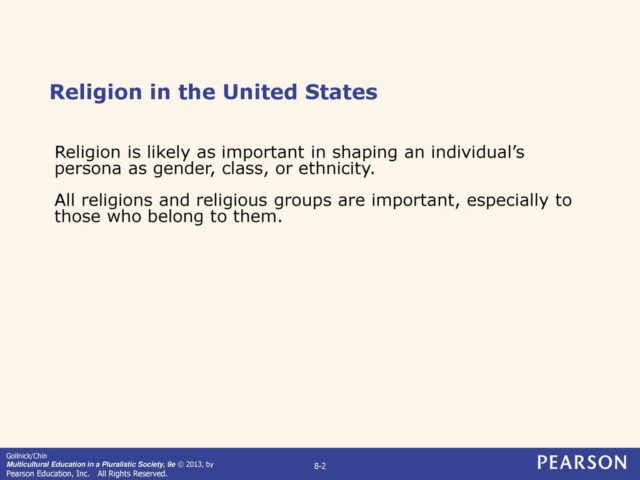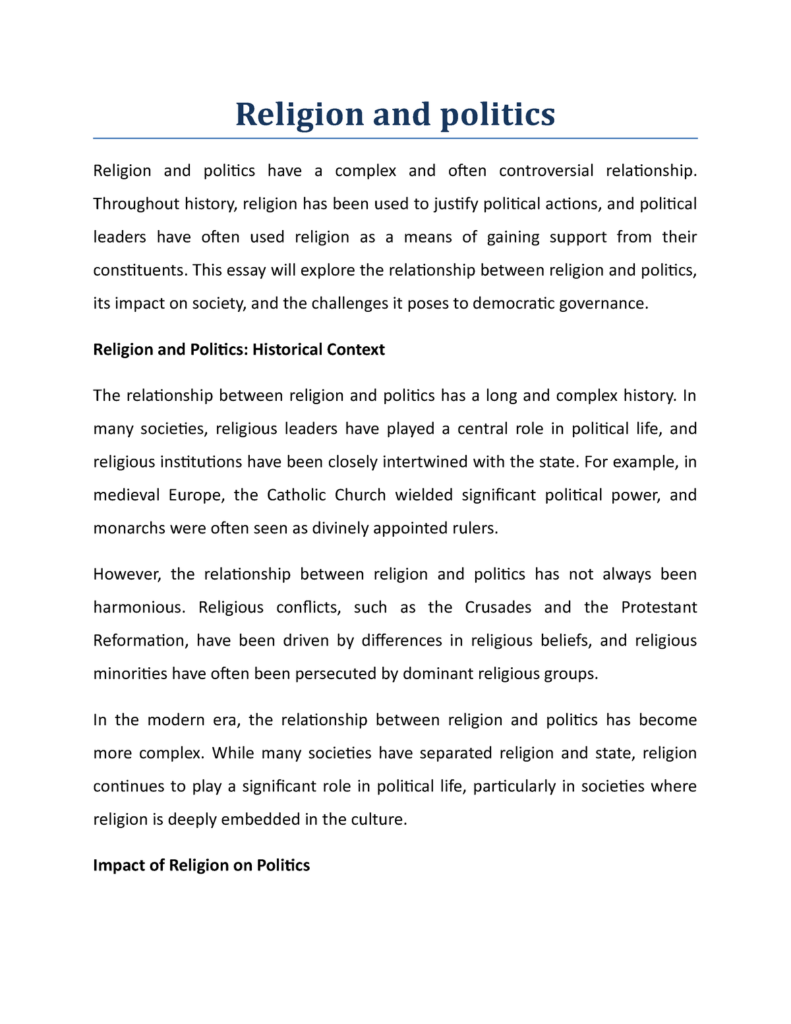
The Role of Religion in Shaping US Politics
Religion has played a central role in American politics since the country’s founding. While the United States was built on the principle of separating church and state, religion has continued to influence political decisions, candidates, and voter opinions. In this blog, we will explore how religion shapes US politics, covering different aspects that make this relationship so important.
Historical Context: Religion’s Influence on US Politics
Religion has been part of the American political landscape from the beginning. When the Founding Fathers created the US Constitution, they established a separation between church and state. However, this didn’t mean religion was absent from political life. Many of the early settlers were seeking religious freedom, and their beliefs shaped the colonies’ laws and social values.
The Declaration of Independence mentions a “Creator,” reflecting the belief that certain rights are God-given. This foundational idea that moral authority comes from a higher power has continued to influence political debates. Throughout US history, religious movements, like the abolition of slavery or the civil rights movement, were deeply tied to religious beliefs.
Presidents have often invoked religion, using phrases like “God bless America” and referring to divine guidance. Religion has also influenced political speeches and campaigns, helping politicians connect with voters who share their faith.
Religion and Voter Behavior: How Beliefs Impact Choices
Religion significantly affects how people vote in the US. Voters often choose candidates whose values align with their religious beliefs. For example, evangelical Christians, a large voting bloc, often support candidates who are pro-life and oppose same-sex marriage because these issues align with their religious teachings. On the other hand, more progressive religious groups may support candidates who advocate for social justice, healthcare reform, and environmental protection, seeing these as moral responsibilities.
Religious affiliation can be a strong predictor of how people vote. For example, white evangelical Protestants tend to vote for conservative candidates, while Black Protestants and Jewish voters tend to support more liberal policies. Catholics are divided, with some focusing on social justice issues and others on more conservative causes like opposing abortion.
Religion also influences political participation. People who attend religious services regularly are more likely to vote and engage in political activities. Religious leaders often encourage their congregations to vote or become politically active, especially on issues like marriage, family, and life.
Religion in Political Campaigns: A Powerful Tool
Religion is often used by politicians to connect with voters. Candidates frequently reference their faith to show that they share the values of their constituents. Publicly identifying with a religious group can help build trust and establish a moral standing with voters.
For example, many presidential candidates attend church services, participate in religious events, and openly talk about their faith during their campaigns. They may also adopt policy positions that appeal to religious voters, such as supporting religious freedom or opposing policies that conflict with certain religious beliefs, such as abortion or same-sex marriage.
However, using religion in campaigns can also be divisive. Politicians who emphasize one religion may alienate voters of other faiths or those who do not practice any religion. This can lead to the perception that certain political candidates favor one religious group over another, raising questions about the separation of church and state.
Despite this, religion remains a powerful tool in political campaigns. Many voters see a candidate’s faith as a reflection of their moral character and ability to lead.
Religious Groups and Political Lobbying
Religious organizations often engage in political lobbying, pushing for laws and policies that reflect their beliefs. These groups range from large national organizations to smaller, community-based groups. They work to influence politicians on issues that are important to their faith communities.
For example, organizations like the Christian Coalition and the Family Research Council advocate for conservative policies, focusing on issues like abortion, marriage, and religious freedom. On the other side, groups like the Religious Action Center of Reform Judaism or the National Council of Churches may lobby for social justice issues, including immigration reform, climate change action, and healthcare.
Religious lobbying can be highly effective. Politicians often rely on these groups for support and guidance on complex issues. These organizations can also mobilize large numbers of voters, making them important players in the political process.
At the same time, religious lobbying can be controversial. Some people believe that religious groups should not have such a strong influence on politics, as this can blur the lines between church and state. Others argue that religious organizations have a right to participate in the political process, just like any other group.
Religion and Controversial Political Issues

Religion often plays a role in some of the most controversial political issues in the US. Topics like abortion, same-sex marriage, and religious freedom are deeply tied to religious beliefs, and these issues often dominate political debates.
For example, abortion is a key issue for many religious groups, especially evangelical Christians and conservative Catholics, who believe that life begins at conception. This belief leads them to oppose laws that allow abortion and to support candidates who promise to restrict or ban the practice.
Same-sex marriage is another issue where religion plays a significant role. Many religious groups oppose same-sex marriage based on their interpretation of religious texts, while others support it as part of a broader belief in equality and love for all people. This divide has led to heated political battles, with religious groups on both sides lobbying for their positions.
Religious freedom itself is also a controversial issue. Some people believe that religious individuals and organizations should have the right to act according to their beliefs, even if this conflicts with certain laws or social norms. For example, some business owners have refused to provide services for same-sex weddings, citing religious objections. This has sparked debates over whether religious freedom should take precedence over anti-discrimination laws.
The Separation of Church and State: A Balancing Act
One of the core principles of US democracy is the separation of church and state. This idea, rooted in the First Amendment, ensures that the government does not establish a state religion or interfere with religious practices. However, the line between church and state is not always clear.
While the government cannot endorse a specific religion, religious beliefs often influence political decisions. For example, religious groups may advocate for laws that reflect their values, and politicians may cite religious beliefs when making policy decisions.
Balancing religious freedom with the separation of church and state can be challenging. Some people believe that religion should have no role in politics, while others argue that religious values are essential for a moral society. The key is finding a balance where religious groups can express their beliefs without imposing them on others through the law.
Conclusion
Religion continues to play a significant role in US politics, influencing everything from voter behavior to policy decisions. While the separation of church and state remains a guiding principle, religious beliefs will likely continue to shape the political landscape for years to come. Understanding this dynamic is essential for anyone interested in the intersection of faith and politics in the US.









